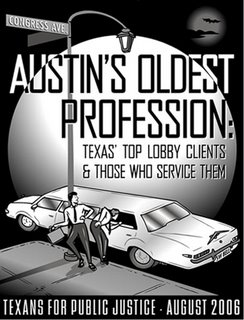Body of surprise
By MIKE McILVAIN
How Webb County handles the dead has been a live issue for some time and remains one with related duties under scrutiny and discussion.
Raul Casso, chief of staff for county judge Louis Bruni, believes publicly aired disagreements with the Sheriff’s Office stem from a lack of the meeting of the minds, despite what might have previously appeared to be an understanding. Bruni and commissioners had been led to believe that the Sheriff’s Office would be picking up bodies left to them after two trucks were delivered to the county and later outfitted with refrigeration earlier this year.
“Picking up bodies has been a sore spot with the county at $50,000 a year,” Casso said.
Unidentified bodies and those requiring extensive forensic examination in criminal cases are frequently sent to the Bexar County Medical Examiner’s office in San Antonio.
Casso, and Texas A&M International criminal justice professor Clifford Black both say the sheriff’s office entered into talks about picking up bodies found around the county, or in the river, with intentions of saving money. Definitive, concrete action was lacking to make it all happen, however.
Casso says Webb County sought to have its own morgue unit a few years ago and floated bonds to try and bring it about, but nothing happened. The county also lacked control over which funeral homes showed up to pick up the dead.
Casso says Sheriff Rick Flores stepped into a verbal crossfire when county leaders discovered to their surprise that his deputies were not picking up bodies. Webb County wants to take care of transporting the dead themselves to combat inconsistent and high charges from funeral homes.
Casso lacked detailed funeral home transportation charges, but noted that costs ranged from $800 to $1,500 for indigenous burials and said transport charges were similar in their inconsistent costs.
“It’s about the same kind of spread to take them to San Antonio, or pick them up,” he said.
Casso said commissioners had set a limit on paying the funeral homes and bought the trucks to move duties into county hands, but notes that the trucks were never specifically assigned.
Casso doesn’t blame Flores for any misunderstandings and does not believe the sheriff had intentionally lied to him.
“He was never specifically given the job, but he never spoke up,” Casso said. “I don’t feel I was misled. They didn’t ask me for anything. I can’t take the position that I was purposely mislead.
“He was never told to go and do it. There was no mandate to go pick up bodies. It looks like maybe they are going to do it, but it remains to be seen.”
Black has worked with county sheriffs in Ohio, Denton and Laredo isn’t so sure that that will happen. He doesn’t see it as a normal duty for law officers.
“I think the sheriff’s departments across the United States do not transport bodies to the morgue if there are any undertakers or funeral parlors in the vicinity,” he said. “The morgue’s not our responsibility.”
Key words in related conversations between Casso and the Sheriff’s Office are blamed for leaving wrong impressions because law officers frequently see dead bodies in their investigations.
But that doesn’t mean they get used to it.
“Why don’t you come with us the next time?” Casso heard once, understanding how horrible those assignments can be. “It can be really terrible out there, finding bodies that have been in the river for a couple of weeks or out in the monte under the hot sun for some time.”
Casso will be glad to finally see Webb County get its own morgue unit underway, costs of dealing with the dead reduced and clear communication with the Sheriff’s Office.
“He the Sheriff, is not the problem. It is just a big gangly problem that’s got to be taken care of,” he said. “It’s just got to be worked out. That’s all there is to it. I thought they were picking them up, but they’re not.”
Black says Webb County usually has some seven or eight deputies on patrol in a day shift, covering some 3,400 square miles.
Webb also plans on hiring a two-person morgue staff starting with a medical examiner, but Casso notes that they are very hard to find.
“San Antonio is there, but nine times out of 10 the local guy (medical examiner) can tell you how they died,” he said.
Laredo is some six times smaller than San Antonio, where numerous Laredo-area dead are examined. The Bexar County Medical Examiner’s Office employs 42 people, with one doctor and three or four autopsy technicians working each shift. One or two clerks handle receiving paperwork duties.
Note: A more extensive version of this story is available in the August issue of LareDOS, here in Laredo, Texas.



